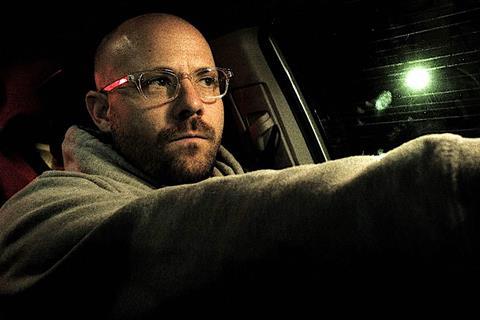A Toronto cab driver takes a journey to the dark side in Fantasia’s New Flesh award winner

Dir/scr: Michael Pierro. Canada. 2024
The everyday horrors of the modern gig economy prove fertile ground for Self Driver, the debut feature from Canadian writer/director Michael Pierro which effectively explores the toxic relationship between desperation and exploitation. Despite the practical limitations of its ultra-low budget, this story of a Toronto taxi driver whose need to earn a living leads him down a dark path makes the most of its simple premise, and serves as a strong calling card for both its maker and lead actor Nathanael Chadwick.
Effectively explores the toxic relationship between desperation and exploitation
Pierro has previously edited music videos, TV shows and indie features, and demonstrates a keen eye for detail in this confident step to features. Having won both Fantasia’s New Flesh award for best debut feature and best film in Fantaspoa Genre Film Festival’s ‘Low Budgets, Great Films’ competition, Self Driver could well find a modest but appreciative audience on home soil; Mongrel Media have the film for Canada. Further afield, streaming is a more likely destination.
A succinct set-up tells us all we need to know about 30-something Toronto cab driver ‘D’ (Chadwick). Weary even before he begins the night shift, eating junk food in an ageing car already piled high with wrappers, he ignores calls from his landlord and promises his partner (a voice on the phone played by Sasha Gaponovitch) he’ll be home to her and their young child just as soon as he can. He’s clearly living a hand-to-mouth existence, enduring a succession of unpleasant passengers paying a succession of insultingly low fares.
Pierro knowingly captures the anonymity of this kind of life; D’s fares all come through an Uber-style app called VRMR (pronounced ‘vroomer’), which sends him cheery messages about his pick-ups and getting enough rest, but make it virtually impossible for him to speak to an actual human when he needs help. Filming on hand-held cameras predominantly inside the car, Pierro (who also acts as cinematographer) utilises the tight space and restricted angles to emphasise D’s claustrophobic and monotonous existence. Shots through the window into Toronto’s bustling nightlife are often blurry and distorted, showing D’s increasing disconnect with the world around him. The influence of Taxi Driver is clear, especially in extreme close-ups of D’s tired, wired eyes and the 70s-inspired titles.
But, unlike Travis Bickle, D doesn’t want to clean up the streets, he simply wants to make enough money to comfortably exist within them. So it’s no surprise that when a too-good-to-be-true opportunity comes along via a passenger, Nick (Adam Goldhammer), and his shadowy new app Tonomo, which promises him earnings of thousands of dollars a night, D throws caution to the wind and gives it a try. It’s not as if he has much to lose — or so he thinks.
The journey the film takes from this point is an obvious one, as the app — which D has to obey or he will quickly lose money — instructs him to pick up increasingly dodgy fares. (The app itself is well designed, with its gentle female voice, video game-esque sound effects and the happy, dopamine-hit ping of money earned keeping D coming back for more). But as things get more intense, the screenplay begins to drift towards genre cliche; particularly in its use of vulnerable women as dramatic bait.
Yet it is all just about kept on the road by Chadwick, who is in almost every shot of the film and who gives D a believable, if beaten-down, humanity. Running the gamut from frustration, bemusement and disbelief to resignation and, eventually, fear as the app’s demands grow more extreme, he finds himself trapped in even more of a vicious circle than he was before. His actions may be questionable at times, but they are always understandable.
The super low-budget nature of the film (which shot, guerrilla-style, with a skeleton crew in downtown Toronto during two weeks of night shoots for, reportedly, less than $10,000) has its limitations, but mostly works in its favour, giving it a grimy immediacy as we watch this hellish night unfold. The soundtrack is also well utilised, composer Antonio Naranjo blending peppy, benign beats with human voices in mournful harmony, underscoring the fact that D is both complicit in and a victim of the capitalist nightmare in which he finds himself, with no discernible way out.
Production company: Summo Duo
International sales: Summo Duo, michael@summoduo.com
Producer: Kire Paputts
Cinematography: Michael Pierro
Editing: Michael Pierro
Music: Antonio Naranjo
Main cast: Nathanael Chadwick, Catt Filippov, Lauren Welchner, Reece Presley















![[L-R]: Amanda Villavieja, Laia Casanovas, Yasmina Praderas](https://d1nslcd7m2225b.cloudfront.net/Pictures/274x183/6/4/1/1471641_pxl_20251224_103354743_618426_crop.jpg)









No comments yet